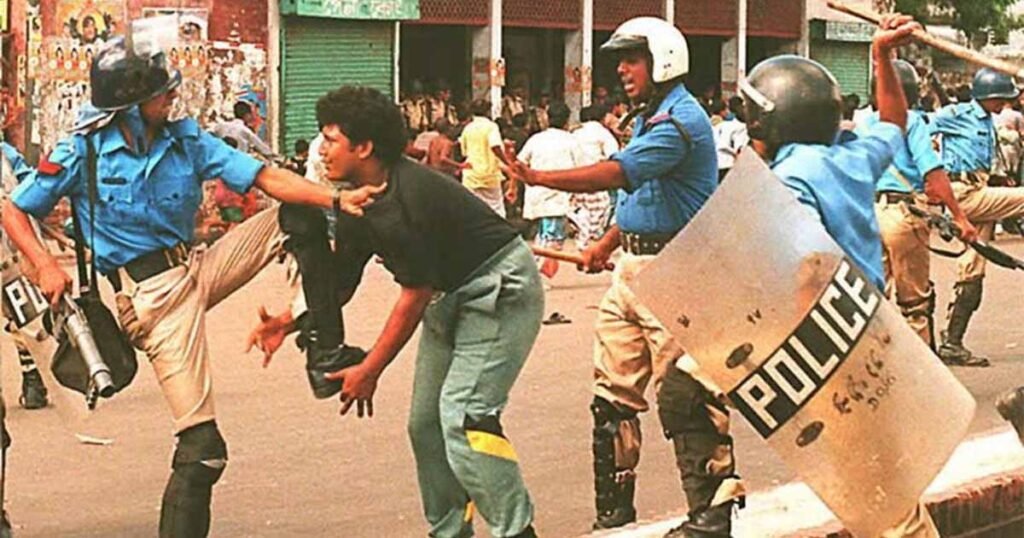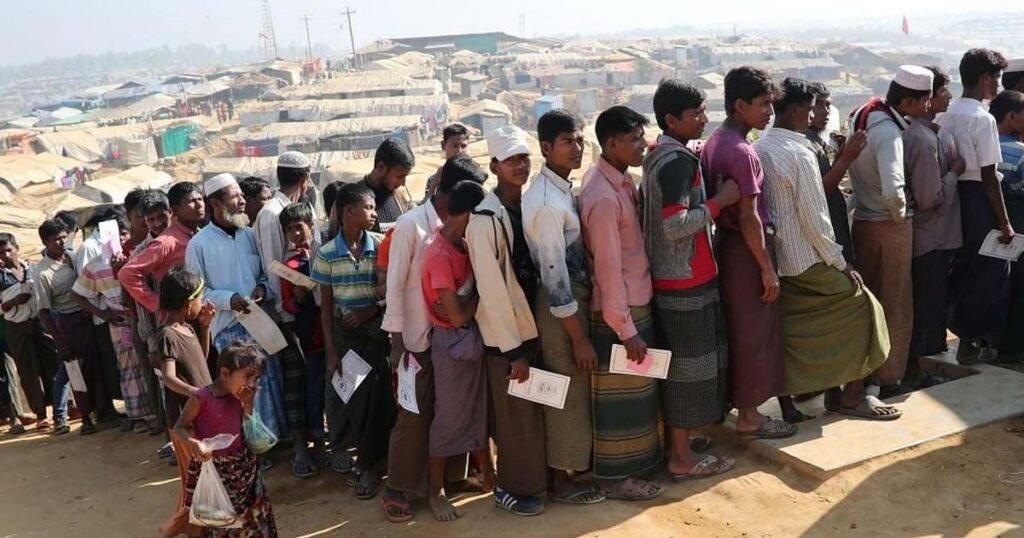Her unwavering commitment to upholding democracy and the rule of law was evident throughout the discussion, offering a comprehensive understanding of her perspective on these important matters
In a recent interview with Voice of America (VoA), Prime Minister Sheikh Hasina of Bangladesh firmly stated that there is no possibility of reverting to the caretaker government system. She emphasized that the country’s constitution had been amended in alignment with a higher court’s verdict, ensuring that only elected governments would come to power. This interview shed light on several critical issues, including US Visa sanctions, human rights, Khaleda’s treatment abroad, the caretaker government, the constitution, and the historical context of the caretaker government system in Bangladesh.
You can also read: Without the Awami League, Bangladesh risks return to period of darkness: Prime Minister
Here, we delve into the key points and insights she shared during the interview, offering a comprehensive understanding of her perspective.
US Visa Sanction Against Bangladesh
Prime Minister Sheikh Hasina has inquired about the rationale behind the United States imposing visa sanctions on Bangladesh, especially given her government’s assurance of upholding all rights, including the voting rights of the people.
In an interview with Voice of America on Saturday, the premier also raised questions about the timing of the US sanctions while conversing with VOA Journalist Satarupa Barua. “They discuss human rights and voting rights. The Awami League has actively championed the voting rights of the people in this nation. We have implemented comprehensive measures to ensure free and fair elections, including the introduction of voter lists with photos, transparent ballot boxes, and the promotion of public awareness regarding their voting rights,” she remarked.
PM Hasina further emphasized her commitment to the democratic process by citing the slogan “my vote, my choice” as evidence and asserted, “Even the slogan ‘amar vote ami dibo, jake khushi take dibo’ was coined by me.”
The premier also contended that all elections held in Bangladesh since 2008 have been conducted fairly.
“The people of Bangladesh are highly conscious of their right to vote. If someone manages to win elections through fraudulent means, the people do not allow them to remain in power for long,”
She also raised the issue of visa restrictions, asking, “I have only one question: why are they suddenly imposing these visa restrictions on us?”
Caretaker Government
When questioned about the potential for taking action to modify the constitution establish a transitional government or engage in discussions with the opposition coalition, she responded, “The right to vote is a fundamental aspect of democracy. In 2007, when a state of emergency was declared, the High Court issued a ruling stating that an unelected government would never assume power, and power would be transferred to an elected government in accordance with the High Court’s decision. The constitution was subsequently amended in line with this ruling.”
“Now, how can we overturn the High Court’s decision or alter the constitution? And why would we even consider doing so? Our nation’s history is filled with painful experiences, including periods of martial law, military dictatorships, and elections marred by irregularities, often under caretaker governments.”

she noted, citing an instance in which BNP Chairperson Khaleda Zia allegedly engaged in vote manipulation in 1996 and was unable to hold power for even two months. Moreover, the BNP was responsible for the removal of the caretaker government system.
Khaleda Zia’s Abroad Treatment
Regarding Khaleda Zia’s treatment, she stated, “Khaleda must first return to prison then move abroad for medical care.” “If the BNP wishes to facilitate Khaleda Zia’s overseas treatment, they must seek approval from the court. If the court grants permission, she can go,” said Hasina.
“We have no authority to intervene in the court’s proceedings. As the prime minister, all I could do was temporarily suspend her sentence for humanitarian reasons and permit her to stay at home. The prime minister also added, “Khaleda Zia organized her own medical treatment, which is taking place at the most prestigious hospital in Bangladesh,” the prime minister added.
Cyber Security Act
In response to criticism of the Cyber Security Act, Prime Minister Sheikh Hasina highlighted the significant changes incorporated into the revised Cyber Security Act of 2023, which replaced the heavily criticized Digital Security Act of 2018.
“The introduction of this new law aims to ensure the safety of our citizens, combat terrorism and militancy, and protect the human rights of our people. It is in line with the recommendations put forth by experts,” the prime minister stated, emphasizing that the amended version includes a reduction in penalties.
The proposed Cyber Security Act introduces fines as an alternative to imprisonment in defamation cases filed under the Act. If the law is enacted, individuals will not be subject to police arrest in defamation cases.
Sheikh Hasina underscored the global prevalence of cyber laws, noting, “Cyber laws are not exclusive to Bangladesh; they are in place worldwide.”
Enforced Disappearances
When inquired about the United Nations (UN) report that brought attention to 70 unresolved cases of enforced disappearance in Bangladesh, Sheikh Hasina countered with a question, asking,
“Why hasn’t the UN initiated an investigation if they are unhappy with Bangladesh’s response?”
In response, the government stated that five individuals have been apprehended, and ten are at liberty.
Rohingya Repatriation
When inquired about the resettlement of Rohingya in Myanmar, Prime Minister Sheikh Hasina stated that international aid for the Rohingya population had significantly decreased following the COVID-19 pandemic and the Russia-Ukraine war. Consequently, Bangladesh now shoulders the entire burden.

She emphasized that Bangladesh, with its large population in a confined space, had extended shelter and comprehensive support to the Rohingya for humanitarian reasons. The commitment to providing assistance continues.
Prime Minister Sheikh Hasina expressed her desire for the Rohingya people to return to their homeland, Myanmar. She pointed out that it’s crucial for Rohingya children to grow up in a healthy environment rather than in camps, and the sooner they can return to their own country, the better for everyone.
She called upon all relevant parties to take the necessary steps to facilitate the repatriation of the Rohingya population to Myanmar, noting that the United Nations (UN) and non-governmental organizations (NGOs) could provide assistance in this endeavor.
Good wishes to Bangladesh Cricket Team
Prior to wrapping up the interview that lasted over half an hour, the prime minister conveyed a sincere message to the Bangladesh Cricket Team, who are currently in India getting ready for the ICC World Cup 2023.
She expressed, “I anticipate that each one of you will compete in a way that maintains the dignity of Bangladesh. Compete with full dedication and sincerity.”
Conclusion
In a recent interview with Voice of America, Prime Minister Sheikh Hasina reiterated her commitment to the current democratic system in Bangladesh, firmly rejecting any possibility of reverting to the caretaker government system. She discussed various key issues, including US Visa sanctions, the constitution, Khaleda Zia’s treatment, the Cyber Security Act, enforced disappearances, Rohingya repatriation, and even extended her good wishes to the Bangladesh Cricket Team. This interview provides valuable insights into her perspective on these important matters.


